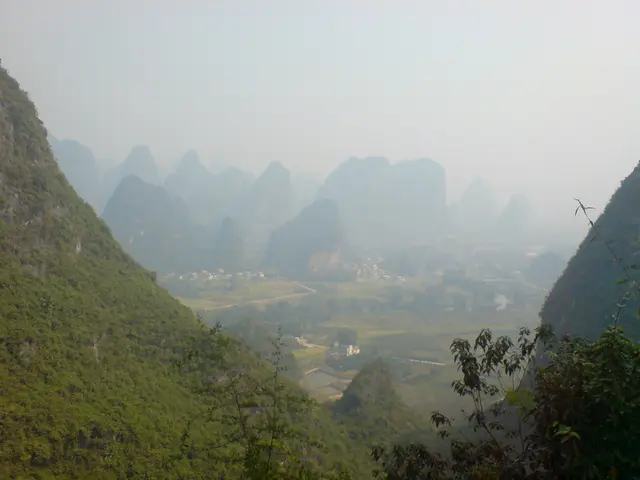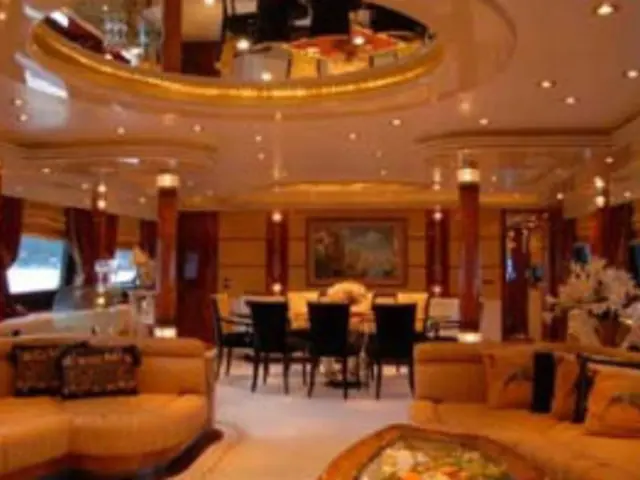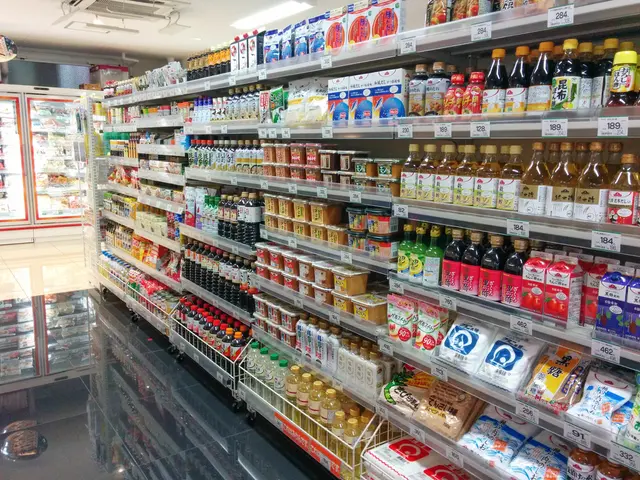Trump Announces Lifting of US Sanctions on Syria: Key Details Examined
Seriously Now:
Donald Trump, the US President, has dropped a bombshell by announcing that sanctions on Syria would be axed. This move, made during his trip to Saudi Arabia, will likely bolster the current government in Tehran, which seized power post-Assad. Trump declared, "There's a new government in the works that might just stabilize the situation and keep the peace," said Trump on Tuesday, the first day of his Middle East tour, which also included stops in Qatar and the UAE.
Trump is expected to meet with Syria's President, Ahmed al-Sharaa, in Riyadh the following day, further signaling an end to Syria's international isolation. The news has sparked celebrations across Syria, particularly in Damascus, with hopes that the move could revitalize the country's economy after a decade of war.
Syrian Sanctions
The US, along with other countries, had imposed sanctions on Syria during the al-Assad regime, which ruled from 1971 to 2024. The US constraints were stringent. In 1979, Syria was labeled a "State Sponsor of Terrorism," setting off an arms embargo and financial restrictions. Additional sanctions were added in 2004, including more stringent arms export controls and limits on Syria's commercial encounters with the US.
When the war in Syria erupted in 2011, and the al-Assad regime started attacking civilian anti-government protesters, multiple other wide-ranging sanctions were imposed. This included freezing Syrian government assets abroad, a ban on US investments in Syria, and restrictions on petroleum imports. The US had even offered a $10m reward for the capture of Syria's current leader, al-Sharaa.
The Reason Behind Sanctions
The extensive sanctions were primarily imposed during the early years of Syria's war, when the US supported the country's opposition and sought to isolate the al-Assad regime, citing human rights abuses, such as chemical weapon usage. The designation of Hayat Tahrir al-Sham, an organization led by al-Sharaa before its dissolution following the fall of al-Assad, as a "Foreign Terrorist Organization" stemmed from its past association with al-Qaeda.
The Lifting of Sanctions
The new Syrian government, led by al-Sharaa, has been gradually gaining international recognition since coming to power in December. The US has already removed the reward for al-Sharaa's capture, and the Syrian president has been able to meet with world leaders.
The new Syrian government has actively tried to establish itself as a moderate force acceptable to the international community. This includes:- Distancing itself from designated "terrorist" groups- Cooperating with other countries on "counterterrorism" efforts- Supporting minority rights
Reuters reported this week that Syria has attempted to persuade the US that it isn't a threat but a potential partner, even suggesting indirect talks with Israel and discussing possible US-Syria business deals, including a proposed Trump Tower in Damascus.
Trump attributed his decision to lift the sanctions to discussions with Saudi Arabia's Crown Prince Mohammed bin Salman and Turkish President Recep Tayyip Erdogan.
Investment in Syria
With the US playing a central role in the global financial system, the lifting of sanctions sends a message to the world that doing business in Syria is possible. The sanctions had previously been economically crippling for Syria and presented a significant hurdle for the new government, which is under pressure to improve living standards and tackle high unemployment and poverty rates, as well as frequent electricity blackouts.
The US's role in Syria's reconstruction remains uncertain, but increased Arab and Turkish investment is likely. Omar Rahman, a fellow at the Middle East Council on Global Affairs, noted, "This takes away a key barrier to [Syria's] ability to establish some form of economic development and prosperity." Rahman cautioned, however, that there are "plenty of other obstacles and challenges the country is facing."
- The lifting of sanctions on Syria by the US, following discussions with Saudi Arabia's Crown Prince Mohammed bin Salman and Turkish President Recep Tayyip Erdogan, opens up opportunities for businesses and investment in Syria.
- The new Syrian government, under President Ahmed al-Sharaa, has been actively trying to establish itself as a moderate force acceptable to the international community, by distancing itself from designated terrorist groups, cooperating with other countries on counterterrorism efforts, and supporting minority rights.
- The sanctions imposed on Syria, which included an arms embargo, financial restrictions, and a ban on US investments, had been economically crippling for the country and presented a significant hurdle for the new government, which is under pressure to improve living standards and tackle high unemployment and poverty rates, as well as frequent electricity blackouts.
- The US's decision to drop sanctions on Syria raises questions about human rights abuses, such as chemical weapon usage, during the al-Assad regime, and the role of the new government in promoting human rights and democratic practices in the country.







